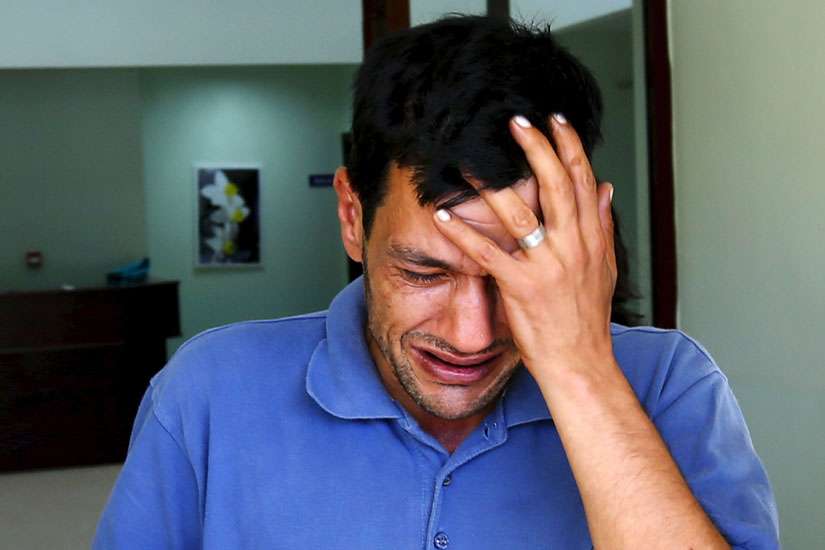“I was heartbroken when I saw that little child lying on the beach,” His Beatitude Mar Ignatius Joseph III Younan told The Catholic Register in an interview in Toronto Sept. 4. “I did ask, ‘Who is responsible?’ When you have a kind of robbery or crime, you look for the (one) responsible. But (those) responsible here, very sadly, are not going to be known or discovered, because they are the big powers on the international scene.”
The West and its policy of isolating the Assad regime in Damascus has allowed the crisis in Syria to drag on, creating an opening for the Islamic State in Iraq and Syria resulting in 3.5 million Syrian refugees and seven million internally displaced Syrians, said Younan.
“In my humble opinion, I will tell you that the West is also an accomplice in that tragedy,” said the patriarch. “Because the Western politicians didn’t have the courage to tell people of the Middle East — that means the Muslim politicians — that it is time to go deeper in the problem, in the issue, and to separate religion from politics, to let all components of the society feel that they are full citizens, full-rights citizens.”
The situation now demands a stronger military response from Western countries. The bombing campaign led by the United States with Canadian participation is “only a military show” that is “absolutely not” sufficient, said Younan.
“I just heard on the news this morning that there were at least 5,000 of what we call strikes, air strikes, against Da’ash (the Arabic name for the Islamic State) in Iraq and Syria,” he said. “But what kind of results?”
The patriarch wants Western boots on the ground and unequivocal support for Syria’s national army under President Bashir Assad and Iraq’s national army.
“If we want seriously to finish with the horrible phenomenon of Da’ash, we need arms. We need soldiers on the ground,” he said.
The West should do more to stop the financial support the Islamic State has been able to get through oil sales and from other sources and close the borders to choke off the supply of foreign fighters flowing into both Iraq and Syria.
Supporting the national armies in Iraq and Syria is a pragmatic solution in Younan’s eyes.
“Because they will be the only ones to be able to fight those terrorists,” he said.
Younan dismisses Western talk of peaceful solutions and a transition to democracy.
“It’s a kind of utopianism to just say ‘people of peace.’ We are dealing with people who don’t recognize the value of peace,” he said. “They only recognize the power of weapons.”
In the Qaryatian district of Syria near Homs, the self-appointed caliph of the Islamic State, Abu Bakr al-Baghdadi, has issued a dhimma or contract granting Christians the right to live unharmed in the area if they pay a religious tax or jizya of 4.25 grams of gold (about $200) for the rich, half that for the middle class, and half that for the poor, the London-based Syrian Observatory for Human Rights reported on Sept. 3. Christians living in Islamic State territory must not establish churches, monasteries or hermitages, may not display Bibles or crosses, may not own weapons or say anything that disparages Islam.
Manifestations of political Islam can’t be trusted and leave Christians no choice but to flee, said Younan. One of Younan’s priests, Fr. Jacques Murad, was kidnapped in the Qaryatian district three months ago and is still being held, Younan said. Younan fears for Murad’s life.
The Syriac Catholic Church continues to preach hope and peace, but young Syrians need some concrete support from the West, said the patriarch.
“We have to keep the faith and the hope and evangelizing and serving our people with charity and solidarity,” he said. “However, how can we convince our young generations that really the Church is with them? The so-called countries based on Christian values, would they help them survive? “


